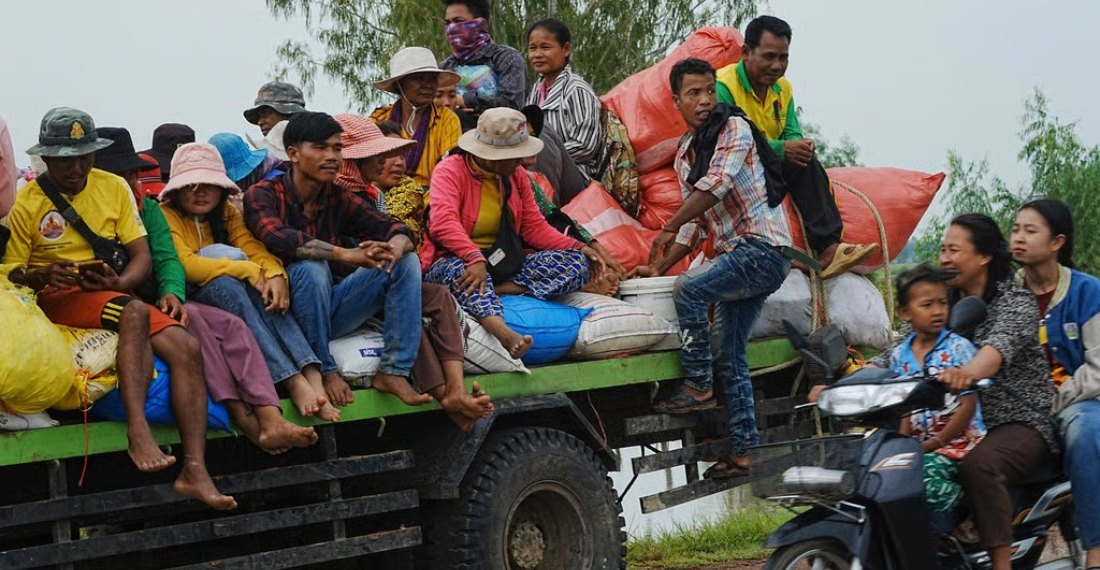Clashes continued on Saturday morning (26 July), on the border between Thailand and Cambodia, as the two ASEAN countries resort to military means to resolve a border dispute between them that has been festering for over a hundred years. Casualties are reported on both sides, involving both civilians and military personnel, and the number of civilians displaced has already reached nearly 150,000.
Thailand said its navy joined the army in repelling Cambodian attacks, in a sign that the conflict is expanding.
The UN Security Council held an emergency meeting on Friday to discuss the conflict.
Cambodia's defence ministry said on Saturday that 13 people were now confirmed killed in the fighting, including eight civilians and five soldiers, with 71 people wounded.
In Thailand, the army said five soldiers were killed on Friday, taking the toll there to 20: 14 civilians and six members of the military.
The death toll across the two countries is now higher than the 28 killed in the last major round of fighting between 2008 and 2010.
The fighting has forced more than 138,000 people to be evacuated from Thailand’s border regions, with more than 35,000 driven from their homes in Cambodia.
After the closed meeting of the Security Council in New York on Friday, Cambodia’s UN ambassador Chhea Keo said his country wanted a ceasefire.
“Cambodia asked for an immediate ceasefire – unconditionally – and we also call for the peaceful solution of the dispute,” he told reporters.
On Friday, before the UN meeting was held, Thai Foreign Ministry spokesman Nikorndej Balankura said that Bangkok was open to talks, possibly aided by Malaysia, which currently has the presidency of ASEAN, the regional body of South East Asian nations.
“We are ready, if Cambodia would like to settle this matter via diplomatic channels, bilaterally, or even through Malaysia, we are ready to do that. But so far we have not had any response,” Nikorndej said.
Acting Thai Prime Minister Phumtham Wechayachai has warned that if the situation escalates, “it could develop into war”.
Both sides blamed each other for firing first, while Thailand accused Cambodia of targeting civilian infrastructure, including a hospital hit by shells and a petrol station hit by at least one rocket.
Cambodia has accused Thai forces of using cluster munitions.
At the UN, Cambodia’s envoy questioned Thailand’s assertion that his country, which is smaller and less militarily developed than its neighbour, had initiated the conflict.
“[The Security Council] called for both parties to [show] maximum restraint and resort to a diplomatic solution. That is what we are calling for as well,” Chhea Keo said.
The fighting marks a dramatic escalation in a long-running dispute between the neighbours – both popular destinations for millions of foreign tourists – over their shared 800km (500-mile) border.
source: commonspace.eu with South China Morning Post (Hong Kong), and agencies.
Photo: Cambodians flee their homes in Oddar Meanchey province on Saturday amid the third day of border clashes with Thailand. (Picture courtesy of AP)







